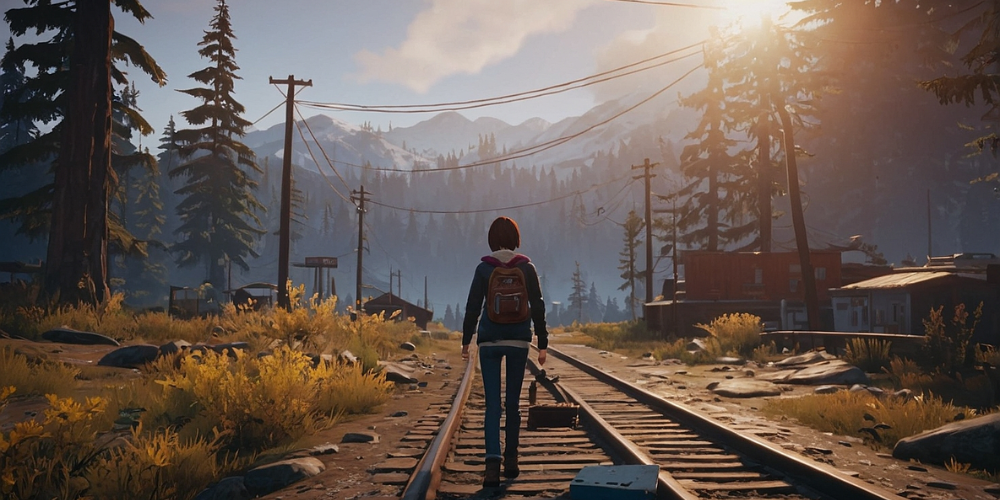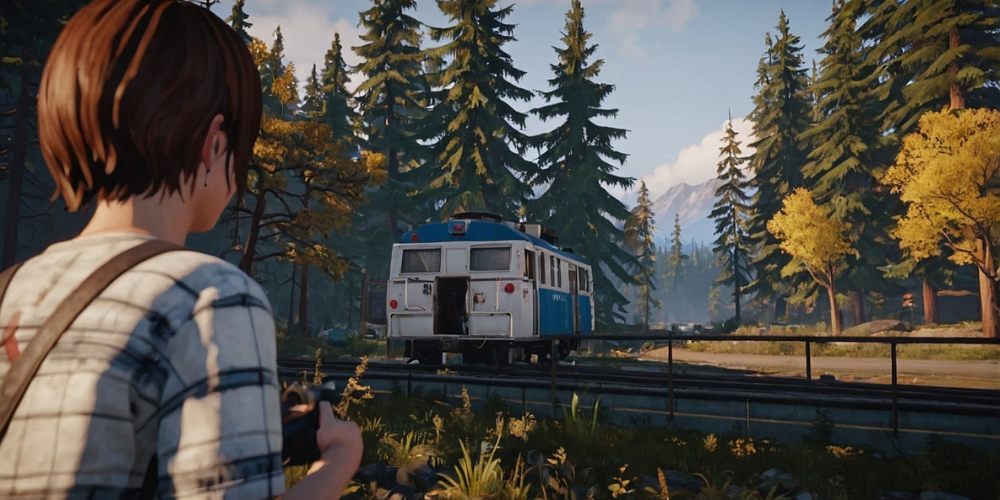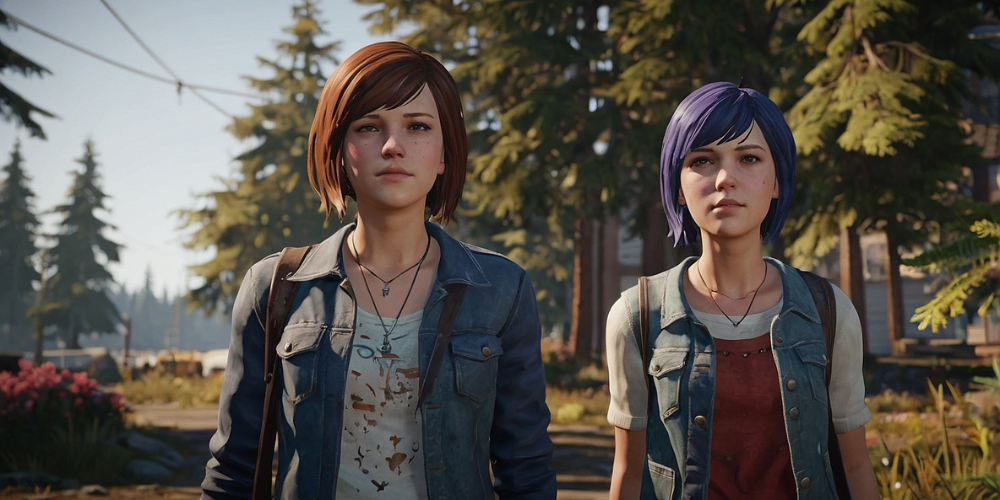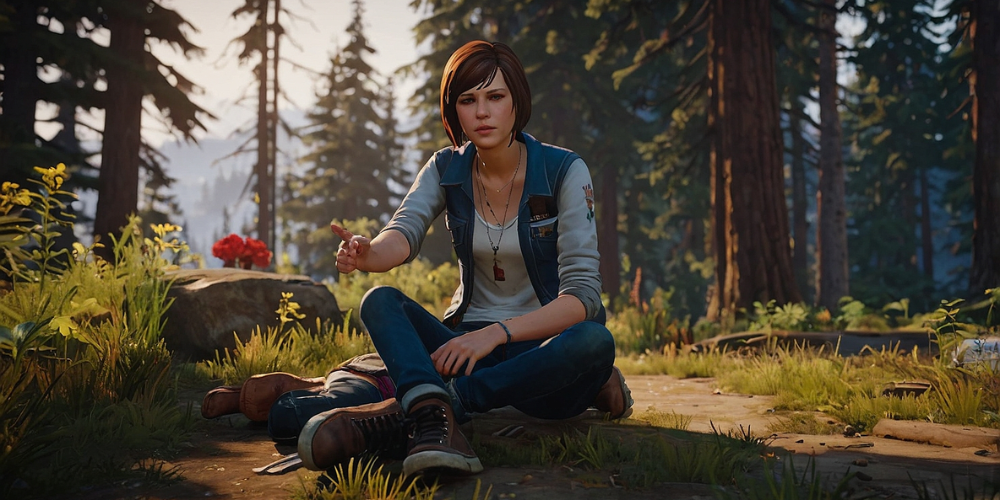The Challenges Of Decision-Making In Life Is Strange
Nov-04-2024

As I treaded through the vivid landscape of Arcadia Bay, I encountered choices that felt as weighty as they were transformative. Life Is Strange isn't just a game; it's an emotional journey weaving through the intricacies of human emotions and moral dilemmas. Each episode plunged me deeper into this comforting yet chaotic world where my decisions shaped not just the story but the lives of the characters around me. It was a reminder of how fraught yet fascinating decision-making can be, echoing in my mind long after I'd set down the controller.
The Ripple Effect of Choices
Every decision I made held the potential for profound consequences. When I chose to rewind time, it wasn't merely a gameplay mechanic; it mirrored the instinctive desire to correct previous missteps. The idea that a single moment could lead to drastically different outcomes became hauntingly clear. I often found myself pondering the inevitability of regret and longing—would I have been happier taking an alternate path?
The Weight of Responsibility
The game's emphasis on responsibility forced me to confront my own values. Each choice brought an emotional weight; the life of one character often hung in the balance of my decision. It felt as if I had been entrusted with the power of life and death. This responsibility grew heavier during pivotal moments like deciding Chloe’s fate. The emotional turmoil attached to these decisions reflected my own doubts and fears. I found myself asking, "What kind of person do I want to be?"

Friendship vs. Rightness
Friendship was a recurring theme in my decision-making process. At times, the bond I shared with Chloe urged me to make choices that didn’t align with my moral compass. I grappled with the question of loyalty versus what was right. It became increasingly difficult to maintain a balance between supporting my friend and acting justly. There were moments when choosing Chloe often felt like sacrificing my values, and I wrestled with whether loyalty justified those choices.
The Complexities of Time Manipulation
Time travel in Life Is Strange added layers of complexity to decision-making. Each rewind allowed me to explore consequences, but this power also bred an unsettling sense of anxiety. The freedom to alter choices blurred the lines of right and wrong, which became a puzzle I wasn’t always equipped to solve. I often found myself caught in loops, re-examining decisions far too many times, trying to ascertain the best outcome without completely compromising my character's integrity.
Personal vs. Social Responsibility
The game constantly nudged me to weigh personal feelings against social ethics. I was faced with choices affecting not only personal relationships but the broader community of Arcadia Bay. The conflicts I encountered ignited a moral debate within me. Deciding whether to report a friend's wrongdoing or stay silent for the sake of our relationship pushed me to scrutinize my own beliefs about justice and accountability.

Emotional Bonding with Characters
Building emotional connections with characters made decision-making even more challenging. Max's relationships evoked empathy in me; I cared deeply for her friends and felt their pain. So when faced with choices affecting them, I grappled with the urge to prioritize their well-being over stricter moral codes. The investment in their stories intensified the significance of my decisions, as each character's journey influenced my own sense of self.
Loss and Grief as Decision-Making Influences
The feeling of loss loomed large throughout the narrative, guiding my choices. I realized that the inevitability of death is something no one can escape. This stark reality painted my decision-making process with sorrow and reflection. The aftermath of choices often resonated with personal experiences of grief, leaving an indelible mark on how I viewed both gaming and life. I had to confront how loss stimulates decision-making—forcing me to consider not just what I wanted, but what I could afford to lose.
Facing the Unknown
Life Is Strange thrived on uncertainty, a feeling that resonated with me profoundly. When faced with the unknown, I found myself wrestling with fear and doubt. Should I steer clear of conflict or confront it head-on? Every decision felt like stepping into darkness, each choice echoing potential for failure. This theme reminded me that uncertainty is a universal experience that invariably permeates the human condition, influencing daily decisions.

The Moral Gray Areas
I discovered that many choices existed in moral gray areas, making them even more difficult to navigate. What’s right or wrong wasn’t always clear; every option had pros and cons distilling into ambiguous ethical dilemmas. Should I betray a close friend to protect another, or is being truthful paramount regardless of the emotional fallout? Such intricacies highlighted how life rarely offers clear answers, forcing me to confront the authenticity of my own moral framework.
Change as a Constant Companion
The game constantly reminded me of the inevitability of change. Characters evolved based on my choices, occasionally in ways I didn’t anticipate. This dynamic posed the challenge of reconciling my decisions with the new realities that unfolded. I needed to adapt, often reminding myself that change can lead to growth, both for the characters and for myself as the player navigating through this unfolding narrative.
Consequence and Guilt
One consistent theme within the game was the horizon of consequences trailing behind every choice. The weight of guilt often accompanied certain paths; some decisions haunted me long after I made them. For example, choosing to ignore a cry for help or betraying a friend's trust lingered in my thoughts. I couldn’t escape that nagging feeling of remorse, which perfectly encapsulated the human experience I adroitly identified with.
Parental Relationships Impacting Choices
The influence of familial bonds became apparent in my decision-making journey. Choices reflecting my relationship with Max's parents brought forward questions about obedience and understanding. As I grappled with tensions between teenage freedom and parental expectations, I felt a connection to the universal struggles surrounding familial obligations. Each interaction deepened my understanding of the tangled web that families often navigate.

Expectations vs. Reality
The idealized version of what I thought life should entail constantly clashed with the reality presented in Life Is Strange. This discrepancy enhanced my understanding of the imperfect nature of existence. Choices that seemed right in theory often pushed characters into murky waters, forcing me to confront the unpredictability of life. This realization resonated within my own experiences, echoing the importance of embracing imperfection and uncertainty in decision-making.
Balancing Empathy and Justice
As I progressed, I recognized that balancing empathy and justice created further complexity in my decisions. When faced with a choice to protect someone I cared about versus pursuing justice for wrongdoing, I often found myself torn. Every outcome demanded a compromise, revealing how closely empathy and ethics intertwine. This tug-of-war shaped my understanding of what it means to be human—an interplay of compassion, righteousness, and occasional sacrifice.
True to Oneself
Finally, Life Is Strange taught me the importance of being true to myself amid the chaos of decision-making. Throughout the series, I found that acting in alignment with my beliefs, way of thinking, and personal history helped guide my choices. Embracing authenticity infused my character with depth and conviction, reminding me that navigating life’s choices can often be most rewarding when I stay true to who I am.







